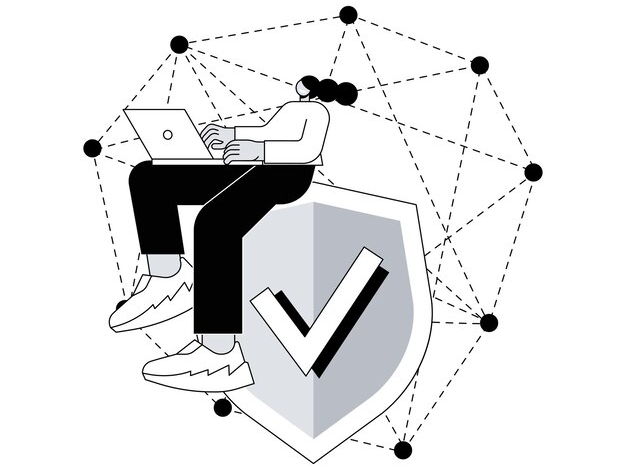The Detailed Guide to VPNs and Their Applications

Virtual Private Networks (VPNs) are powerful tools that offer enhanced privacy, security, and access in various digital realms.
This detailed guide provides an in-depth look at VPNs providers for this 2024, exploring their applications, types, and how they function in different scenarios.
Understanding VPNs and How They Work
A good VPN creates a secure, encrypted tunnel between your device and a remote server, effectively shielding your online activities from surveillance, tracking, and cyber threats.
The Basic Mechanism of VPNs
- Data Encryption: VPNs encrypt your internet data, making it unreadable to outsiders.
- IP Address Masking: They mask your IP address, allowing you to browse with increased anonymity.
Key Applications of VPNs
Enhancing Online Privacy
- Protecting Personal Information: VPNs help safeguard your personal information from hackers and third parties.
- Preventing Tracking: They prevent websites and ISPs from tracking your online activities.
Securing Data Transmission
- Public Wi-Fi Security: VPNs are crucial for securing your data on public Wi-Fi networks, which are often unsecured.
- Safe Remote Access: They provide a secure way to access corporate networks remotely, protecting sensitive company data.
Accessing Geo-Restricted Content
- Bypassing Censorship: VPNs enable access to content and websites that may be blocked in certain countries.
- Streaming and Content Access: They allow you to access a broader range of streaming services and international media.
Types of VPNs
Consumer VPNs
- For Individual Users: Consumer VPNs are designed for individual users who want to protect their online privacy and access geo-restricted content.
Corporate VPNs
- For Business Use: Corporate VPNs are used by businesses to provide employees secure remote access to the company’s internal network.
VPN Protocols and Their Importance
Different VPN protocols determine how data is routed and encrypted, affecting security and speed.
Common Protocols
- OpenVPN: Known for its strong security and versatility.
- WireGuard®: Offers excellent speed and modern encryption.
- L2TP/IPsec: Combines two protocols for enhanced security.
- PPTP: Older and less secure, generally not recommended.
VPN Features and Considerations
Encryption Strength
- High-Level Encryption: Look for VPNs offering AES-256 encryption for maximum security.
No-Logs Policy
- Privacy Protection: A strict no-logs policy ensures that your activities are not recorded or stored by the VPN provider.
Kill Switch
- Security Mechanism: A kill switch disconnects you from the internet if your VPN connection drops, preventing data leaks.
Server Network
- Global Access: A vast server network provides more options for location spoofing and accessing global content.
Setting Up and Using a VPN
Easy Installation
- User-Friendly Interfaces: Modern VPNs come with easy-to-use interfaces for quick setup and configuration.
Multiple Device Support
- Cross-Platform Use: Ensure the VPN is compatible with different devices and operating systems.
Conclusion
VPNs are versatile tools that offer enhanced security, privacy, and freedom in the digital world.
Whether for personal use or corporate applications, understanding the workings, types, and features of VPNs can help users make informed choices about their online security and access needs.
Frequently Asked Questions – (FAQs)
How Do VPNs Protect Online Privacy?
VPNs protect online privacy by encrypting your internet data and masking your IP address, preventing outsiders from tracking or intercepting your activities.
Can VPNs Access All Geo-Restricted Content?
While VPNs can bypass many geo-restrictions, some services employ advanced detection methods to block VPN users. The effectiveness can vary depending on the VPN and the specific content service.
Are VPNs Legal to Use?
VPNs are legal in most countries, but it’s important to use them responsibly and adhere to local laws. In some countries, VPN use is restricted or regulated.
Do VPNs Slow Down Internet Speed?
VPNs can potentially slow down your internet speed due to encryption and the distance of the VPN server, but high-quality VPNs minimize this impact.




